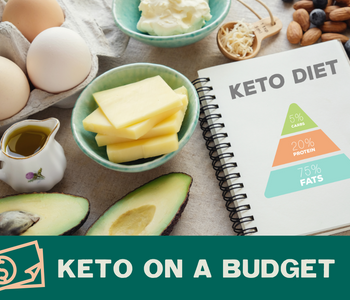Intermittent Fasting: What is it and SHOULD you be doing it?

Written by Molly Becker, Director of KetoBars on February 18th 2021
Read Time: 7 min
The term 'intermittent fasting' has become very popular among health enthusiasts, especially those following a keto or low carb diet. But, what exactly does intermittent fasting mean? What are the benefits? Should YOU be doing it? Answers to those questions and more, below.👇
What is intermittent fasting?
Intermittent fasting, also known as intermittent energy restriction, is a term for various meal timing schedules that cycle between voluntary fasting and non-fasting over a given period of time. It does not specify what foods you should eat but rather when you should eat
There are several different intermittent fasting methods, but some of the most common are the 16/8 Method, Eat-Stop-Eat, and the 5:2 Method. We will talk more about these methods below!
Intermittent fasting methods.
There are several different intermittent fasting methods but these three are the most common:
1. 16/8 Method: Also called the Leangains protocol, it involves skipping breakfast and restricting your daily eating period to 8 hours, such as 1–9 p.m. Then you fast for the 16 hours in between.
2. Eat-Stop-Eat: This involves fasting for 24 hours once or twice a week. For example, by not eating from dinner one day until dinner the next day.
3. 5:2 Method: With this method, you consume only 500–600 calories on two non-consecutive days of the week, but eat normally the other 5 days.
What are the benefits of intermittent fasting?
Many studies have been done on the health benefits of intermittent fasting. These studies have shown that intermittent fasting can benefit weight control and the health of your body and brain. Here are some of the powerful benefits that you can receive from intermittent fasting:
1. Insulin resistance: Intermittent fasting can reduce insulin resistance, lowering blood sugar by 3–6% and fasting insulin levels by 20–31%, which should protect against type 2 diabetes.
2. Inflammation: Some studies show reductions in markers of inflammation, a key driver of many chronic diseases.
3. Heart health: Intermittent fasting may reduce “bad” LDL cholesterol, blood triglycerides, inflammatory markers, blood sugar and insulin resistance — all risk factors for heart disease.
4. Brain health: Intermittent fasting increases the brain hormone BDNF and may aid the growth of new nerve cells. It may also protect against Alzheimer’s disease.
5. Weight loss: As mentioned above, intermittent fasting can help you lose weight and belly fat, without having to consciously restrict calories.
Intermittent fasting and Keto.
You can combine intermittent fasting with the keto diet. In many cases, intermittent fasting can actually help you get into ketosis faster and lead to more weight loss.
Should you be doing it?
That is 100% up to you! However, if you have any questions or concerns about starting a new diet, It's important to talk to your doctor, especially if you have any underlying medical conditions, or if you take medication.
Intermittent fasting is a great strategy to add to your healthy lifestyle. However, it may not be for everyone. The only way to find out if it's the right choice for you is to give it a try!
Love this blog? Share it on social!
WHAT TO READ NEXT
Keto Myths That Make You Squeak
KETO MYTHS THAT MAKE US SQUEAK Written by Tony Berardo on April 29th, 2022 Starting a new fitness program or changing your eating habits can be intimidating and confusing. For...
What To Read Next
Keto Myths That Make You Squeak
KETO MYTHS THAT MAKE US SQUEAK Written by Tony Berardo on April 29th, 2022 Starting a new fitness program or changing your eating habits can be intimidating and confusing. For...









